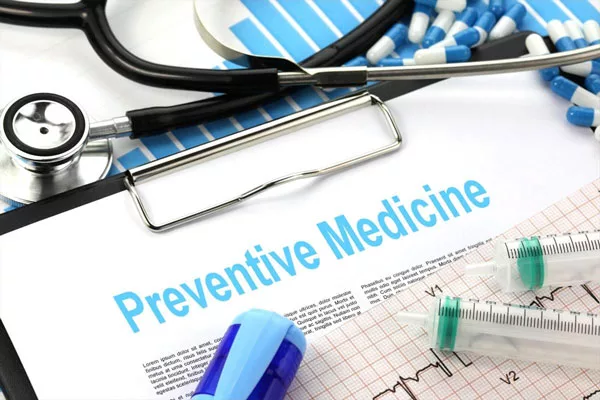The Importance of Regular Check-ups for Seniors: A Comprehensive Guide
Table of Contents
Introduction:
Ah, regular check-ups! They’re not just for that vintage car you’ve been restoring in the garage or the pampered poodle that gets more haircuts than you do. As we gracefully age, just like fine wine, our bodies require consistent maintenance and monitoring.
So, let’s dive deep into the world of medical check-ups and discover why they’re as crucial as that morning cup of joe, especially during our golden years.
Why Regular Check-ups are Essential:
You might wonder, “Why should I bother with regular check-ups? I feel fine!” Well, here’s the scoop:
- Catching Issues Early: Think of health issues like weeds in a garden. The earlier you spot them, the easier they are to deal with. Early detection of health problems, from high blood pressure to diabetes, means easier and more effective treatments. Plus, it’s always better to tackle a molehill than a mountain.
- Peace of Mind: There’s something comforting about getting the all-clear from a doctor. It’s like having a mechanic tell you your car’s in perfect condition. Knowing you’re in good health can be a significant stress reliever, and who doesn’t want to sleep a bit sounder at night?
- Medication Management: As we age, our medicine cabinets tend to expand. Regular check-ups ensure that any medications you’re on are still appropriate for your current health status. It’s like spring cleaning, but for your meds!
The Full Medical Check-up List:
If you’re wondering what to expect during a check-up, here’s a rundown:
- Physical Examination: This is the bread and butter of any check-up. Your doctor will check everything from your heartbeat to your reflexes. It’s a top-to-toe assessment!
- Blood Tests: These can reveal a plethora of information. They check for signs of diabetes, cholesterol levels, kidney function, and more. It’s like a report card for your insides.
- Bone Density: Especially important for post-menopausal women. This test ensures your bones are strong and sturdy, ready to take on dance classes or chase after grandkids.
- Eye Exams: Our eyes are windows to our souls and can reveal more than just vision problems. Regular eye exams can detect issues like glaucoma or macular degeneration.
- Hearing Tests: Because constantly asking people to repeat themselves can get old. And let’s face it, you want to hear every note of that classic rock song or every word your grandchild says.
How Often Should Seniors Get a Check-up?
So, how often should you pop by your doctor’s office?
- Annual Visits: At the very least, once a year is a must. Consider it a yearly reunion with your doctor, minus the awkward small talk.
- Follow-up Appointments: If there are any potential health concerns, your doctor might want to see you more often. It’s like getting a call-back for a second interview, but for your health.
- Specialist Visits: Depending on individual health needs, sometimes a general check-up isn’t enough. Whether it’s a cardiologist for your heart or an endocrinologist for your hormones, specialists are there to dive deeper into specific health areas.
Routine Tests to Expect:
When you go in for a check-up, here are some routine tests you might encounter:
- Blood Pressure Monitoring: High blood pressure is a sneaky culprit, often going unnoticed. Regular monitoring ensures you keep it in check.
- Cancer Screenings: These are essential tests that can catch potential issues early. Colonoscopies, mammograms, and prostate exams might not be the most fun, but they’re crucial.
- Vaccinations: From the flu shot to the shingles vaccine, staying updated can keep those nasty bugs at bay. Think of it as armor for your immune system.
When to See a Specialist:
Not all check-ups are general. Sometimes, we need a specialist’s touch. Whether it’s a cardiologist for that ticker of yours, an endocrinologist to balance those hormones, or a dermatologist to check on that new mole, specialists are there to provide expert care in specific areas.
Conclusion:
Regular check-ups are like spa days for your health. They might not always be the most fun, but they’re essential for keeping you in tip-top shape.
So, next time you’re considering skipping that doctor’s appointment, remember: your health deserves the same TLC as that rose garden you’ve been tending to or the classic car you’ve been restoring.
After all, you’ve earned these golden years; make the most of them by staying healthy and vibrant!
Frequently Asked Questions
What exactly is a regular check-up?
A regular check-up, often called a physical examination, involves a comprehensive health assessment. This can include a review of your medical history, physical examination, blood tests, and other diagnostic tests. It’s a way to check in on your overall health and catch potential issues early.
How often should I get a check-up?
Most doctors recommend that seniors have a check-up at least once a year. However, if you have specific health concerns or conditions, your doctor might want to see you more frequently.
Are there any specific tests I should expect during my check-up?
Yes, during a check-up, you can expect routine tests like blood pressure monitoring, blood tests, and possibly cancer screenings. The exact tests will depend on your age, gender, medical history, and any potential risk factors.
Why are regular check-ups important for seniors?
As we age, our bodies undergo changes, and the risk for certain health conditions increases. Regular check-ups can catch potential issues early, ensuring timely treatment and better health outcomes.
I feel fine. Do I still need a check-up?
Absolutely! Many health issues, like high blood pressure or early stages of diabetes, might not show noticeable symptoms. Regular check-ups can detect these silent conditions and help manage them before they become more serious.
What’s the difference between a general check-up and seeing a specialist?
A general check-up provides an overview of your health, while a specialist focuses on a specific area. For instance, a cardiologist specializes in heart health, while a dermatologist focuses on skin conditions.
How can I prepare for my check-up?
It’s a good idea to make a list of any medications you’re taking, note any health changes or symptoms you’ve experienced, and jot down any questions you have for your doctor. This ensures you get the most out of your visit.
Are check-ups covered by insurance?
Most health insurance plans cover regular check-ups as preventive care. However, it’s always a good idea to check with your insurance provider to understand what’s covered and if there are any out-of-pocket costs.
What if my doctor recommends tests or treatments after my check-up?
If your doctor suggests further tests or treatments, it’s essential to discuss why they’re recommended, the potential benefits, and any risks involved. It’s always okay to ask questions and be informed about your health decisions.
How do I find a good doctor for my check-ups?
Recommendations from friends or family, online reviews, and consultation with your insurance provider are all good ways to find a reputable doctor. Ensure they have experience with senior health needs and feel comfortable discussing your health concerns with them.




